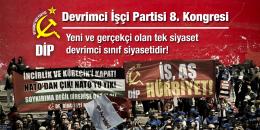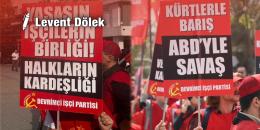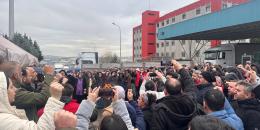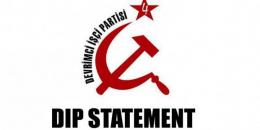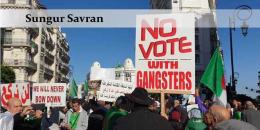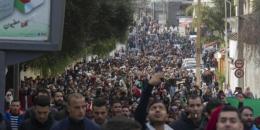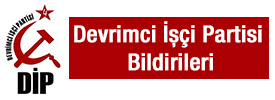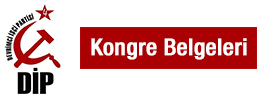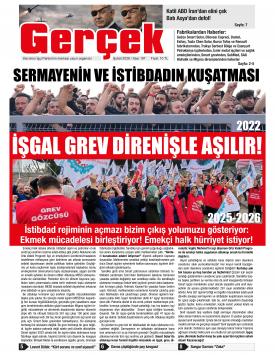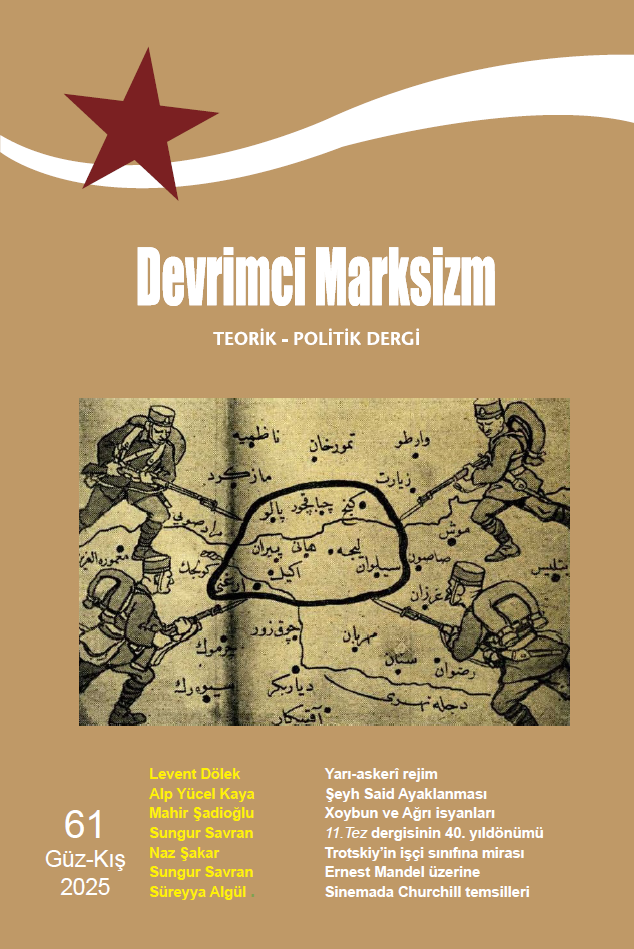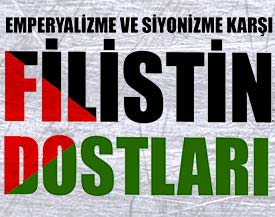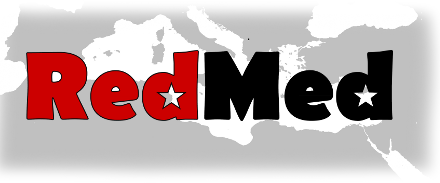Algeria on the brink of revolution: Système dégage!
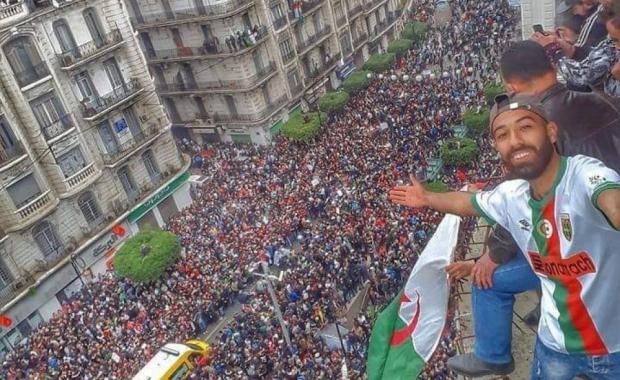
The stakes are rising in Algeria. The mass movement is gaining a level of confidence from which it is very difficult for any kind of regime to turn people back from. On 8th March, coinciding with the International Working Women’s Day, the third round of the demonstrations against the regime represented by Abdelaziz Bouteflika, the moribund president of the republic of Algeria trying to run for a fifth time in the upcoming elections, succeeded to put up a spectacular show of force: most sources talk about hundreds of thousands in the capital city of Algiers alone and millions around the country. One Algerian newspaper (Le Matin d’Algérie) affirms, on the basis, allegedly, of revelations from security forces, that the number of people who demonstrated across the country at large reached the gigantic figure of 15 million.
Although this may sound an exaggeration, whatever the exact figures, it is an undeniable fact that we are face to face with the most widespread mass mobilisation since the time of the Algerian war of liberation and revolution between 1954 and 1962. That revolution was of course one of the most heroic and far-going instances of the worldwide anti-colonial revolution that came about in the wake of World War II. From the formula “Algérie française”, according to which Algeria was not a colonial possession but an integral part of France, to “Algérie indépendante” that in the end triumphed, there was immense humiliation for France. It may be said the same kind of humiliation lies in store for all supporters of the existing regime within and outside the country.
The resistance of the regime
We have already described the regime in power in an earlier article (http://redmed.org/article/algeria-challenging-zombie-state). This is a set of old hands that have capitalised on the glory of the revolution to cling to power since 1962. It is common knowledge that since Bouteflika himself is incapacitated, it is really his brother Said Bouteflika and, alongside him, Ahmed Gaïd Salah, the chief of staff of the armed forces, who pull the strings. However, more importantly, it is a whole set of social classes and strata that rule behind the scenes. Starting with the armed forces, politically very strong and immersed economically in corruption, together with the top echelons of the civilian bureaucracy, this bloc brings together all those strata who bask in the wealth generated by the ample sources of natural gas and oil that the country possesses. Included among these is the powerful businessmen’s association, le Forum des chefs d’entreprises (FCE) (the Forum of Entrepreneurs), which was formed in 2000 at the end of the civil war between the regime and the Islamic fundamentalists and has since been a staunch supporter of the regime and the unending rule of the Bouteflika clan. The FCE capitalists are notoriously subservient to the French bourgeoisie, as is the Algerian regime itself to the former colonial power.
This regime is trying to resist the gigantic rising tide of the people. Since Bouteflika himself has not been addressing the nation personally since his stroke, letters are being produced with his signature to calm down the people. The first of these letters promised that “if elected”, Bouteflika would organise a process of national consultation to modernise the system in accordance with the wishes of the people and then hold early elections which he personally would not contest. The second starts out in a self-congratulatory tone to praise the democratic maturity of Algerian society, only to raise a stern warning regarding the possible interference of internal and external forces that are waiting in the wings to plunge the country into chaos. So it is the spectre of the “bloody decade” of the 1990s through which the government, or rather the clan in power, is trying to threaten the Algerian people into submission. And although repression has not been unleashed yet, the government has shut down universities early so as to divide and weaken the movement, given the importance of the youth in the action. But several universities reacted in a startling manner, disregarding the orders of the ministry and keeping the institutions open. Professors also are seen siding with their students. On Sunday 10th March, high school students boycotted school and gathered downtown, where they chanted slogans against Bouteflika. This raised the ire of the Minister of Education, but to no avail.
It is never easy to control or push back a mass movement of this size for any type of government. Past revolutionary upheavals teach us that when the people have already been seized by the revolutionary urge, repression only whips up their rage and strengthens their determination. So the Algerian regime is, for the moment, temporising while trying to instil the fear of civil war in the masses and divide them.
Face to this corrupt power structure is a new force of neoliberal orientation that is more openly pro-imperialist as opposed to the duplicitous rhetoric of national sovereignty and independence of the existing power bloc. At present this current is represented, first and foremost, by the candidate Ali Ghadiri, a former army general himself, who promises an abstract sort of “rupture” from the existing orientation of the regime.
More important than this opposition is the emergence of fissures in the FCE as a result of the popular anger. Although Ali Haddad, the president of the bosses’ organisation remains loyal to the regime, the vice-president and two important members have declared cessation of payment regarding their dues, a boycott of sorts. So it seems that the zombie regime is no longer alive for at least a part of the ruling bourgeoisie itself. This augurs well for the immediate prospects of the popular insurgency, but threatens a possible eventual recuperation of the mass movement by a section of the bourgeoisie.
There are even cracks within the power structure itself. The ONM, the organisation of former mujahideen, i.e. veterans of the independence war against France, has openly come out to declare that it stands on the side of the people and supports their demands. In similar vein, Djamila Bouhired, a prominent heroine of the War of Liberation, took her place among the demonstrators on Friday. At least seven prominent personalities, some Central Committee members and some former parliamentarians have resigned from the ruling party FLN and joined the demonstrations against the fifth term that Bouteflika is seeking. More and more, it seems, the days of the regime are becoming numbered.
The rapid maturing of the insurgency
Apart from sheer numbers, the mass movement is becoming a real threat because, politically speaking, it has matured very rapidly in the space of a mere fortnight that has passed from the 22nd February, when the first round of demonstrations was organised. During the first round, the political goal seemed to be getting rid of the zombie president. By the second round on 1st March, the popular masses had realised that the real zombie was the regime that pulled the strings of Bouteflika and hence started to direct its fire on the whole regime. Now both the watchwords and the debate have risen to a new level. It is no longer a question of whether to get rid of the regime but how.
And the leap is clear in the watchwords as well. For many, perhaps the majority, it is no longer sufficient to attain the holding of elections without Bouteflika. The demands have advanced to include not only the withdrawal of Bouteflika, but also that of the government, as well as the dissolution of both chambers of parliament. These are posed as preconditions to the passage to a free and democratic country. How the country should move from the first point to the second is a matter for intense debate. There is talk of a transitional government and a constituent assembly. There is an oft–repeated slogan that says “no elections before the fall of the gangs”. It should be noted that, with this demand, the mass movement is extending its reach to the socio-economic sphere, thus making the aims of the uprising social as well as political. This shows that there is already a nascent tendency for social, as well as political, revolution here.
It is fascinating to see how revolutionary movements of the people readily and rapidly learn from each other and even consciously emulate the patterns used by other countries. The Friday actions in Algeria are now labelled “Acts” as in the jargon of the theatre, just as the Saturdays of the French Yellow Vest movement have been dubbed from the beginning. But then, unsurprisingly, the ruling powers also learn from each other. The Algerian government was inspired, in all probability, by the Sudanese government when closing down universities early so as to weaken the movement. And, of course, more comically, the promise by Bouteflika to organise a national consultation after the elections is a crass imitation of Macron’s tactics. We find this comical not only because the Algerian power structure aspires to walk in the footsteps of its former colonial ruler, but also because the “national consultation process” has been a farce even in its original homeland, France, and therefore looks more like an insult to the intelligence of the Algerian people than a rope to be grabbed in desperation by the regime.
It is also noteworthy that the major slogan of the Arab revolution of the period 2011-2013 has made a comeback. “The people want the fall of the regime” was chanted all throughout the Arab world in those years. It travelled the world, to be painted (in French) on the walls of Paris thanks to the gilets jaunes and later to reappear in the present Algerian uprising. With one difference, apparently, from what we read in the Algerian press: The Algerians, the most francophone of all Arab peoples, use, instead of the word “nizam” (regime) at the end, the French word “système”. That is also the reason why some placards read: “Système dégage”. “Dégage” (meaning “move!”), was first used in Tunisia in the form “Benali, dégage”. The fact that that which has to move is now the regime or the system rather than a single dictator shows the rapid political maturing of the Algerian masses.
Prospects
Several points have come out quite clearly in Act III of the Algerian uprising. The first is that although the ruling bloc is facing fissures, we do not think that the alternative to the regime will be sought in the neoliberal wing of Ghadiri. If there is going to emerge a bourgeois alternative, that alternative will have to come from within the ruling power bloc. The reason is that, under the stresses created by the Third Great Depression, unbridled neoliberalism, and especially globalism as the international extension of neoliberalism, are no longer a way forward for the ruling classes of countries experiencing the fallout of the depression on their home front. Algeria is one such country, where the crisis is very grave because of the collapse of the price of oil and natural gas since 2014. This requires a more interventionist approach even for the interests of the bourgeoisie.
Secondly, the working class is entering the fray with its own methods. On Sunday 10thMarch, a general strike was declared, which was followed by quite a high ratio of workers and employees according to reports in the Algerian press. Public or private enterprises, including bigger ones such as Sonatrach, Cevital, the ports and transportation saw very high participation. Some cities and towns came to a complete standstill. Up until this point the uprising seemed to be a kind of cross-class citizens’ movement. This unity between people of all walks of life looked to some as the strength of the movement. Hence some prominent figures have come up explicitly against the general strike. These people are very clearly acting, whatever their subjective intentions, as the spokespeople for the petty-bourgeoisie, if not the dissident wings of the bourgeoisie. These classes do not want the working class to distinguish its forces as an independent power because they know that it will be more difficult for them to arrest the movement at the smallest sign of softening on the part of the regime, without the movement getting out of hand and turning into a revolution.
The independent action of the working class with its own class methods and hopefully more and more with its own class demands is of cardinal importance for the future of the movement. For the moment, it seems only the so-called autonomous unions go with the popular uprising, while the official unions were more reluctant. But now, as these lines are being written on Monday the 11th, 20 unions of the Tizi Ouzou wilaya (province) affiliated to the official federation Union génerale des travailleurs algériens (General Union of Algerian Workers-UGTA) have clearly come out against the fifth term of Bouteflika. All these are extremely important signs. Elements of the regime are defecting to the side of the masses. Most importantly, the working class is gaining its independence. Only to the extent that the working class becomes an independent driving force of the uprising will the future of the movement be guaranteed and to that extent the selling out of the struggle by moderate upper class forces be prevented.
The Algerian revolution, when it becomes a reality, will need all the different popular classes and strata, including the poorer strata of the petty-bourgeoisie. However, a working class mark upon the revolution is needed for the sustainability of the revolution. This was also the case of Tunisia and Egypt. In the case of Tunisia, the initial source of the revolution owed its momentum to the poverty and unemployment from which an overwhelming sector of the youth suffered in what is called “the interior” of the country (as opposed to the coastline, which at least has the advantage of tourism). And when the revolution took off in earnest, the UGTT, the powerful trade union federation, played the role of chief organiser and as home to revolutionaries. In Egypt, one and a half million workers abandoned the official unions in which they had been regimented to form new independent ones. And there was a widespread strike movement that clearly precipitated Hosni Mobarak’s fall.
Third, the working masses have suffered seriously in the last decade as the Third Great Depression wrought its havoc on the Algerian economy, most palpably in the form of the fall in the price of oil and natural gas. So the uprising has socio-economic roots as well as political causes. However, these are not yet directed towards the rule of the bourgeoisie, but rather to “corruption”. A class-conscious reaction will take time to emerge.
Yet despite these limits, the transition to a fully-fledged revolution has started, in our opinion, in Algeria. The reason is that the mass movement is discussing and debating the modalities of the formation of new state structures. It is not only revolting against its suffering, but taking things in its own hands and reflecting on a new constellation of elements of political power. It is yet too early to call it a revolution, but the tendency is clearly there. This is the most important point. The question of power has already been posed. Whether the working class will throw up, in the course of this struggle, organisations (councils, factory committees, and, most importantly, a revolutionary party) that can serve as the basis for a transfer of power from one class into another is yet to be seen. Once set in motion, a revolution with this kind of mass support has the potential to last several years. So no one can predict the final outcome, should the mass uprising become a revolution.
Some reflections on tasks
It is difficult if not impossible to offer a clear tactical line from afar, unless one has at least a foothold in the country through which the pulse of the masses can be held. The kind of ready-made solutions and watchwords that are advanced by self-appointed Internationals, without due regard to the concrete position of classes and political forces in the country are most unwelcome. Yet an internationalist dialogue with revolutionaries on the field is also desirable, even necessary.
The refusal of elections under these conditions and the demand that all existing institutions of the power structure dissolve themselves and cede place to new structures are, of course, correct. This is precisely a moment when a boycott (should the government insist on going along with elections) is indicated in the purest terms, when the mass movement has the potential power to replace existing institutions, including parliament, with new and more democratic ones. Any organisation that backs down on that position, a position that is now shared by large sections of the mass movement, will have to be seen as capitulating before the corrupt regime.
However, between the two formulae that circulate, that of a transitional government and a sovereign constituent assembly, proletarian socialists should definitely opt for the latter. A transitional government that is expected to prepare the country for democratic elections, a government that is not accountable to any elected body, is a formula for the absorption and recuperation of the mass movement within the contours of bourgeois class power. The experience of the ongoing Sudanese revolution teaches us concretely that this type of government will be “technocratic” in nature (see our article on the Sudanese revolution, http://redmed.org/article/sudan-revolution) and thus remain in the hands of the petty-bourgeoisie and the bourgeoisie, who have the “specialists” within their ranks, and answer to imperialism’s goading in the absence of any other power. A sovereign constituent assembly should be the power to which a transitional government should be accountable.
Of course, there should be no fetishism of the constituent assembly. If the working class and the peasant masses or the unemployed and other oppressed strata throw up their organs of self-organisation, then proletarian socialists should, when the balance of forces permit, go beyond a call for a constituent assembly to the demand for a workers’ and labourers’ or a workers’ and peasants’ government based on these organs of self-organisation.
All this is really too general to be of guidance to proletarian revolutionariesinside Algeria. They define not what tactics should be pursued, but rather what tactics should not be pursued.
One final word about the “peaceful” nature of the movement. This is not new. It was the fashion during the Egyptian revolution as well. How the fact that revolutionaries refrained from arming the people played into the hands of the Bonaparte al Sisi, the head of the only armed force in the country (apart from the fundamentalist Islamists), is now clear for everyone to see. We humbly tried to remind the Egyptian revolutionaries that all revolutions ultimately resolve their pending questions with arms. The Algerian masses, as well as the Sudanese, chant “silmiya, silmiya” (“peaceful, peaceful”) when they are out demonstrating. This is understandable in a country that still bears the scars of a devastating civil war that lasted throughout the decade of the 1990s. Anyway, it is only “ultimately”, as we have pointed out above, that many revolutions have had to resort to armed struggle. But paying attention to the psychology of the masses for the moment is different from disarming them.
Internationalism
There are different facets to the concrete tasks of proletarian internationalism in the context of an insurgency. We will just point to a very specific aspect in the Algerian case. It is of utmost importance for the Algerian mass movement to set up lasting and close links to the gilets jaunes movement in France and vice versa. One reason is obviously mutual solidarity between two insurgent movements in two countries. Another is the response of the insurgent masses to the solidarity between the ruling classes of the two countries. French imperialism has poked its nose in the Tunisian revolution and will no doubt do the same in Algeria and a common response to this is needed. Another is the colonial aspect of the history of relations between the two countries: an alliance of the oppressed and the exploited will be an example of the beauty of internationalism for the rest of the world. Still another, and here we are coming to the crux of the matter, is the existence of a large immigrant community of Algerian origin living and working in France, who could be instrumental in providing the link to set up the much needed solidarity between the two movements. Finally, we said “vice versa” above: not only would it help the Algerian movement to establish contact with the gilets rouges, but it would be even more useful for the French movement, because it would create for them a new and very strong ally in the “beurs”, the massive immigration communities of Arabs in France and, in particular, the generations born in France.
We are at the dawn of a new phase of the struggle internationally. We call this period the third wave of world revolution. After an initial phase in 2011-2013, the mobilisation seemed to subside and go through what we call a “parliamentary moment”. But 2018 witnessed popular rebellions all around the globe. So it would seem that a new phase is opening up in which revolutions and uprisings will once again dictate the terms of the struggle in different countries. (For details of the argument see http://redmed.org/article/2018-year-resurgence-third-wave-world-revolution). As if to confirm the fact that the phase that is opening is not an entirely new process, but the revival of the revolutionary wave of 2011-2013, it has reached its peak in two Arab countries, Sudan and Algeria.
Studying these uprisings, rebellions and, wherever applicable, outright revolutions, not only in the Arab world but everywhere, from Zimbabwe to Hungary, from Haiti to Iraq, will prepare us for the coming hurricane. But without revolutionary proletarian parties and without a revolutionary International based on these, the working class cannot win. Program, strategy and tactics become real guides to action only when combat parties exist and base their politics on them in order to lead the working classes to power.

